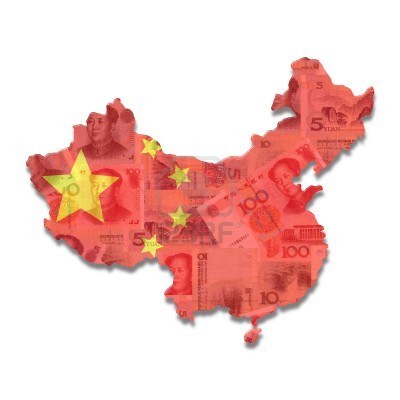Beijing’s Race to Diversify out of US Treasuries: New Agreements would Allow Singapore to become “Leading Offshore Trading Centre” for the Chinese Yuan

China is concerned with its US treasury holdings worth up to $1.2 trillion after Washington’s spectacle earlier this month over its fiscal policies that pushed the world’s economy into a crises. “The move, along with other agreements on financial cooperation, is expected to bolster Singapore’s status as a leading offshore trading centre for the Chinese Yuan, officially called the renminbi (RMB)”the report said. “China and Singapore will introduce direct currency trading between the Chinese yuan and Singapore dollar,” the Monetary Authority of Singapore (MAS) said in a statement, adding that details will be announced separately.” China is in a good position because it allows Singapore to invest in Chinese stocks and bonds with Yuan’s boosting its capital markets.
The report said that “China will also grant Singapore-based investors a 50-billion-yuan ($8.2 billion) investment quota under its Renminbi Qualified Foreign Institutional Investor programme, MAS said. This would allow investors based in the city-state to use the Yuan to invest in Chinese stocks and bonds.” China is racing against time in case lawmakers in Washington do not come up with an agreement to raise the “Debt Ceiling” to borrow more money or solve their economic problems. China is diversifying out of US Dollars at a rapid pace since the 2007-2008 financial crises that resulted in the bankruptcy of major financial institutions, bailouts and government takeovers such as Lehman Brothers, Fannie Mae, Freddie Mac, Citigroup and American Insurance Group (AIG). China is also frustrated with the US government’s backing of its neighbors internal affairs with Beijing regarding the South China Sea. Reuters reported on October 10th, 2013 the following:
The US is also aggressively backing the Philippine government’s maritime dispute with China when U.S. Secretary of State John Kerry angered China’s leadership “All claimants have a responsibility to clarify and align their claims with international law. They can engage in arbitration and other means of peaceful negotiation,” Kerry told leaders at the East Asia Summit in Brunei, including Chinese Premier Li Keqiang. “Freedom of navigation and overflight is a linchpin of security in the Pacific,” he added.
It is important to note that Hillary Clinton, who is rumored to run as a Democratic candidate in the 2016 US Presidential elections, told an ASEAN summit in 2010 that the US had a “national interest” in the “freedom of navigation. “ Clinton also angered China that only proves that the US is directly intervening in a regional dispute. Since the Obama administration got into office they have repeatedly used the ASEAN forums for multilateral discussions between China and its South East Asian counterparts supporting the opposition and ignoring Beijing’s call to settle the disputes bilaterally. The US has supported the Philippines (considered a US puppet state) and Vietnam to counter China’s claims aggressively resulting in numerous maritime incidents in the South China Sea and has divided all countries within ASEAN. China is threatened economically and militarily by the US government (See graph below).

China is making moves to loosen the US government’s strangle hold over its economy and its regional disputes with its neighbors. China’s economic growth will benefit Singapore in the long run as “Chinese institutional investors will also be allowed to use the Yuan to invest in Singapore’s capital markets.” The AFP also stated that “Relevant agencies in Singapore and China are also in discussions to facilitate China-incorporated companies, which have received regulatory approval to list directly in Singapore.” And that “The new initiatives will further promote the international use of the Renminbi through Singapore,” the MAS said.
Times are changing for the world’s economy. China and other countries are in preparation for a possible US default in the future. When can the US Dollar collapse? It is hard to tell since the US economy is intertwined with the global economy. But one thing is for sure China and other countries across the planet are diversifying out of the US Dollar and it is accelerating. That is a fact. Singapore is not taking any chances either. “Its managing director Ravi Menon added: “Financial ties between the two countries have deepened considerably and Singapore is well placed to promote greater use of the RMB in international trade and investment in the years to come.”
The AFP report said “China’s rise as the world’s second biggest economy has seen the Yuan take on a bigger role in international financial markets.” 2014 will be an interesting year for world financial markets. What will happen when Washington is once again on the center stage in January? Will they continue to increase the “Debt Ceiling” so that they can borrow until the end of time? Or will they play “Political Brinkmanship again? Will the Federal Reserve Bank “Taper” its monetary policy by Mid-2014 if the US economy improves as Chairman Ben Bernanke promised or will the new Chairwoman Janet Yellen, a member of the Council on Foreign Relations (CFR) and a protégé of Alan Greenspan continue to print US “Fiat” currencies with low interest rates? Many questions on the US economy remain elusive. China has many reasons to worry about its financial future and its sovereignty and that is a declining empire called the United States government.
No comments:
Post a Comment